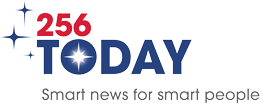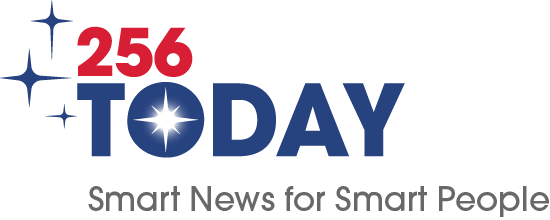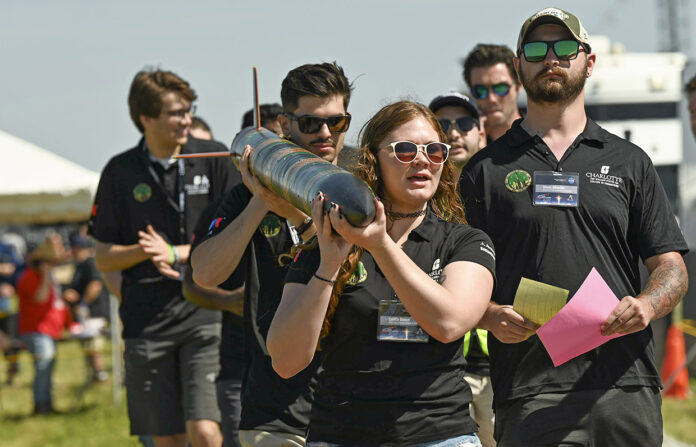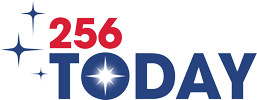HUNTSVILLE — There were dozens of perfect liftoffs at NASA’s 2022 Student Launch rocketry competition at NASA’s Marshall Space Flight Center as winners were announced live via Facebook.
Of the 60 competing teams, 27 teams launched here in the Rocket City nine months ago; other teams launched from sites closer to their schools.
Each year, NASA challenges middle school, high school, college, and university students from across the United States to design, build and launch a high-powered amateur rocket, fly it to an altitude between 4,000 and 6,000 feet, and make a successful landing.
For the second year in a row, the University of North Carolina at Charlotte won the launch division and its $5,000 prize and Tarleton State University in Stephenville, Texas, won the design division and $2,500.
“Programs like NASA’s Student Launch are part of a greater process to prepare a new generation of scientists, engineers, astronauts, and explorers to pick up the torch and carry out the next missions,” NASA Deputy Administrator Pam Melroy told the students. “These students are the next generation – the Artemis Generation.
“There are so many opportunities before them, and they should be so proud of what they’ve accomplished and learned in Student Launch. I encourage all of our participants to maintain a curiosity to learn and to explore.”
Fred Kepner, an education program specialist and activity lead for Student Launch, said he was thrilled for both the teams.
“Both teams were able to join us for the first Huntsville launch since 2019,” he said. “And to those that launched from a home field, the teams’ ability to adjust and conduct flights from the location that best suited their situation was another sign of their innovative spirit and drive to succeed.”
Teams in the college/university division tackled a new task that mirrors NASA’s missions.
The students had to design a payload capable of locating where their rocket landed. They were to identify the rocket’s grid position on an aerial image of the launch site while transmitting the data back to their ground station.
This had to be accomplished without the use of GPS. The requirement simulates a challenge faced by NASA’s mission managers – communicating with spacecraft and payloads on distant planetary bodies, where GPS is not an option.
Middle and high school teams could choose to attempt the college/university division challenge or develop their own science or engineering experiment.
The top five teams in the launch division were the UNC Charlotte; University of Notre Dame; Vanderbilt University; University of Florida; and Purdue University.
The top two teams in the design division were Tarleton State and New York University.
Additional awards were presented in multiple categories including AIAA Rookie, Judge’s Choice, AIAA Vehicle Design, Experiment Design, AIAA Launch Division Payload Design, Safety, Project Review (launch and design divisions), AIAA Reusable Launch Vehicle, STEM Engagement, Altitude, 3D Printing, Social Media, Best-Looking Rocket and Team Spirit.
For more than 20 years, Student Launch has provided a realistic experience to students that resembles the development, test, and operational lifecycle NASA and industry engineers use when developing and operating new hardware.
Marshall hosts Student Launch and NASA’s Southeast Regional Office of STEM Engagement manages the event, which is one of the agency’s Artemis Student Challenges.
These activities stimulate innovation and advance NASA’s human exploration mission through collaboration with educational institutions and students – the Artemis Generation – who will help NASA explore the moon and Mars.
NASA’s Space Operations Mission Directorate and Office of STEM Engagement, along with Northrop Grumman, provide funding and leadership for the initiative.
Don’t miss out! Subscribe to our email newsletter to have all our smart stories delivered to your inbox.



